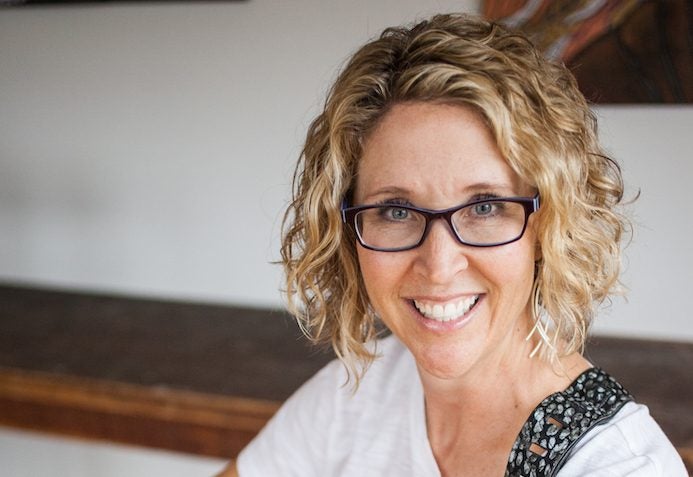SMITH: What some Afghan skateboarders taught me about resilience
Published 9:10 am Friday, April 17, 2020

- Erin Smith is the owner of the OM place in Winchester, the author of “Sensible Wellness” and the online host of the OM channel. Follow her on Twitter @erinsmithauthor.
|
Getting your Trinity Audio player ready...
|
In 2007, Australian skateboarder Oliver Percovich arrived in Kabul with his three favorite skateboards.
Percovich’s girlfriend had taken a research job in Afghanistan and Percovich tagged along, unsure about the next phase of his life.
He spent the first few months skateboarding in an attempt to get to know his new home.
After decades of war, half of the Afghan population was under the age of 16 and poverty was at an all-time high.
Percovich was distressed to see streets filled with idle or begging children and teens. Young people chased him everywhere he went, begging to try his board.
Before long, the street in front of his home was filled constantly with kids waiting their turn for a go, and most of those kids were girls.
At this time, under Taliban rule, girls were made to wear a burka in public and barred from working outside the home. Most were not allowed to attend school, play sports or even laugh loudly in public. Even bicycling was deemed “culturally inappropriate” and outlawed.
Percovich realized quickly the skateboard was a beautiful loophole. It was so unknown in the country that no one had had time to forbid it. It seemed more like a toy than a sport, so no one batted an eye to see girls performing ollies and kickflips in the abandoned fountains of the town.
Those girls, with Percovich’s help, started Skateistan, an international non-profit that uses skateboarding and education to empower kids, focusing especially on girls.
In addition to Afghanistan, there are now Skateistan academies in Cambodia and South Africa.
Cultural norms made these young women vulnerable. But on the other side of vulnerability lays resilience.
Society taught these girls their only value lay in their ability to cook, clean and bear children.
In a situation of oppression and subjugation, where hope and opportunity must have seemed distant, these resilient girls found a way to inject their lives with joy and accomplishment.
Skateboarding was a gateway to purpose, and showed these girls they had merit.
Resilience is the ability to recover from stress and trauma, to bounce back after undergoing adversity.
We are all individually and collectively enduring a traumatic experience right now. We are all wondering if we will bounce back.
These skateboarding girls are a beautiful reminder of the irrepressible human spirit.
It’s all too easy right now to see our collective experience as only getting worse.
We’re literally told every night on TV how we should expect things to get worse before they get better. Expect more positive cases of corona. Expect the hospitals to be overrun, staffed by front liners without protective gear. Expect that death will touch each of us personally in some way.
I’ve noticed so many of us are projecting, mentally time traveling to how the virus will alter the human journey in the after.
The impact of this pandemic may alter the cultural rituals and behaviors that have evolved since time immemorial, and those projections seem pretty dire.
We will never shake hands or hug again.
Large arena games and concerts will be things of the past.
Learning at home will become the norm for all students.
A simple fever will trigger a panic attack.
Life will shift more and more virtually and less and less face-to-face.
Travel will cease; our world will become less global and more local.
It can leave us feeling hopeless and despondent.
But then I remember those burka-wearing skateboarders. They had pretty much everything going against them and still found delight and motivation.
Perhaps our species is stronger than we think.
A well-known research study followed 2,500 New Yorkers for nine months after 9/11.
The researchers found that more than 65 percent of those individuals exposed to the trauma (some directly, like EMTs and firefighters) exhibited “remarkable resilience.”
Humans were adapted to survive, after all. We tend to be cooperative in times of disaster, even if the impetus is for our individual safety.
We will have to process our trauma, obviously. But we will also come up with incredibly imaginative ways to feel happy and connected.
When bicycling is against the law, we will still find ways to execute a perfect kickflip.
Erin Smith is the owner of the OM place in Winchester, the author of “Sensible Wellness” and the online host of the OM channel.



